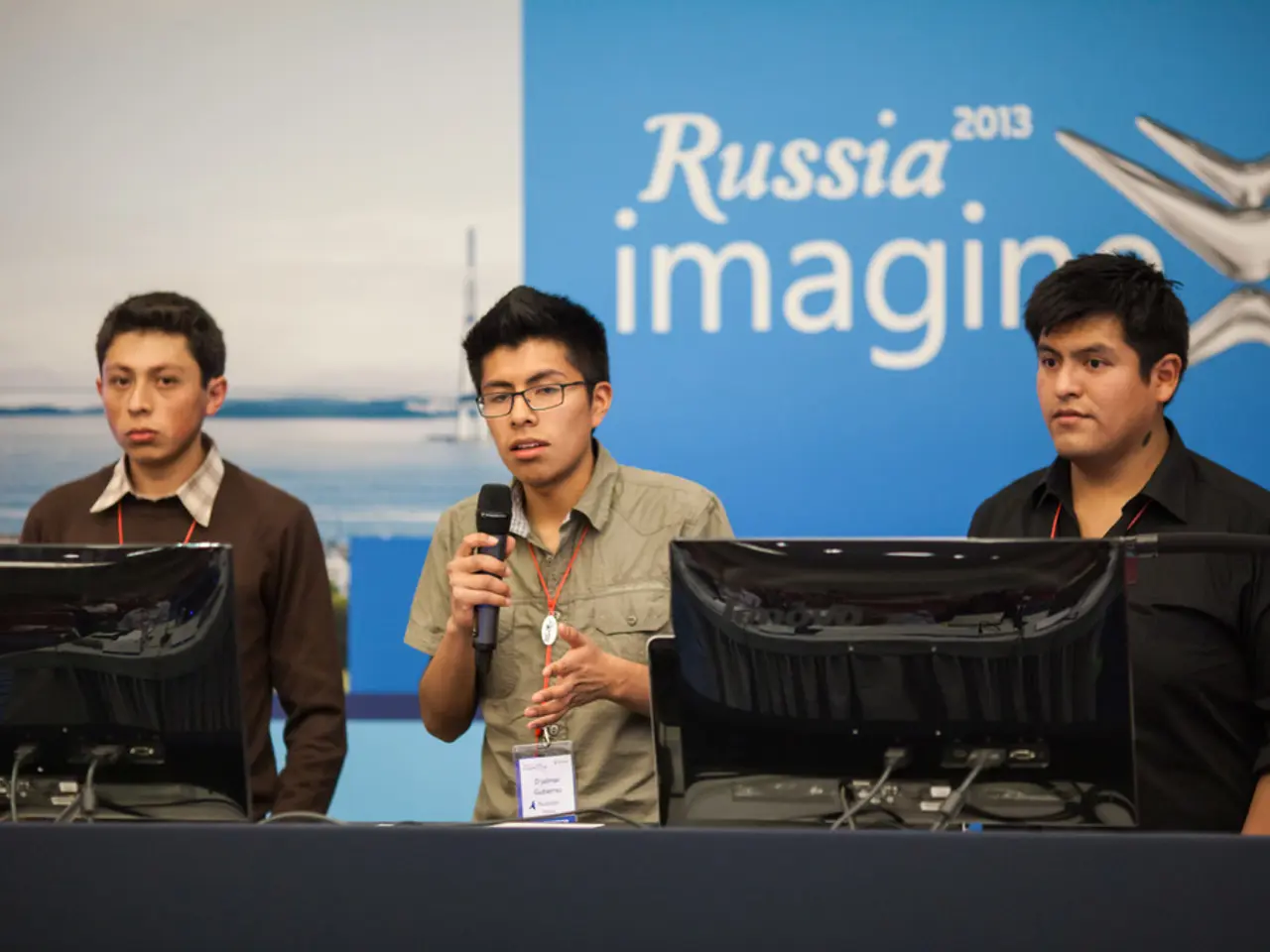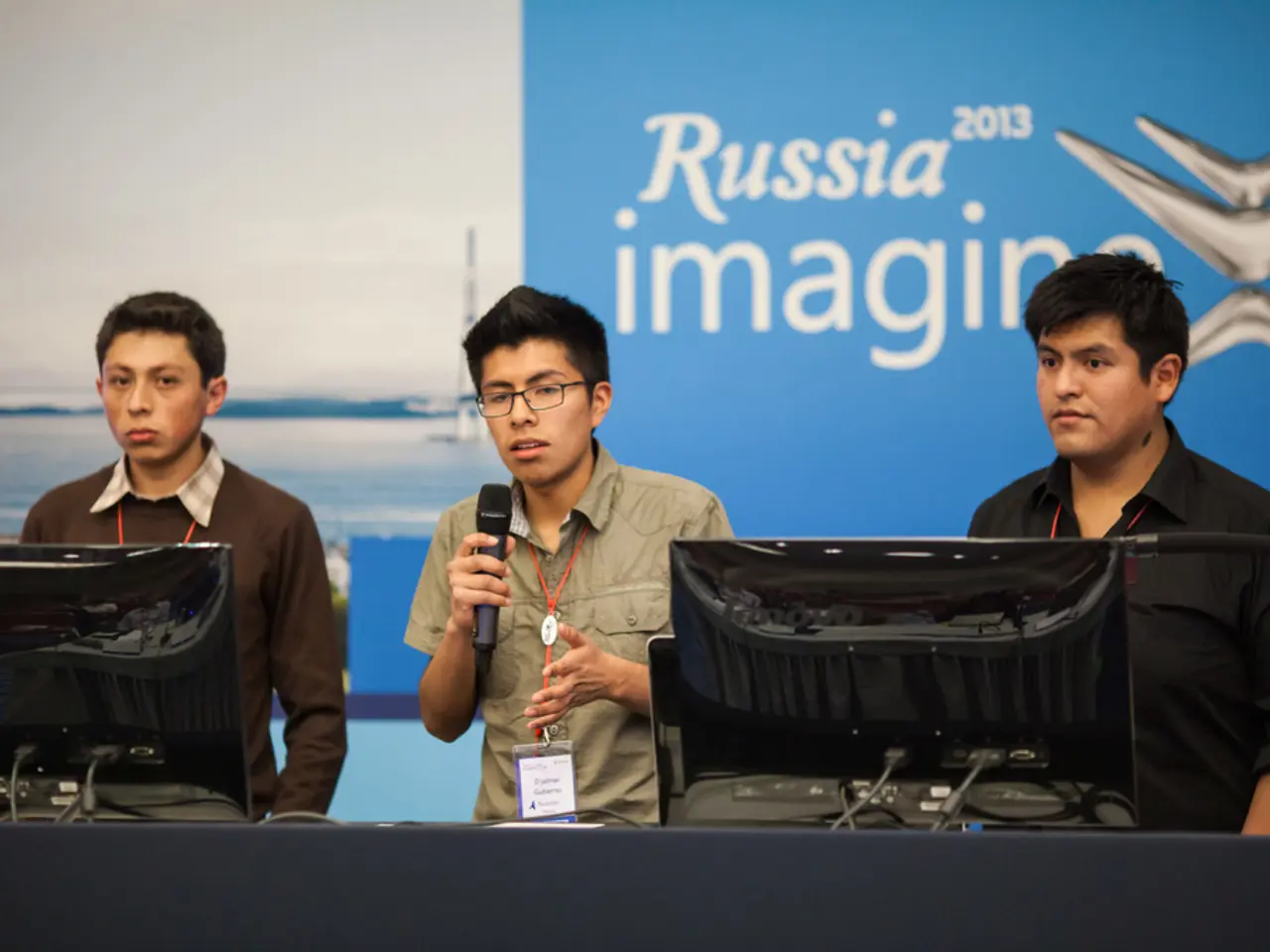North Korean leader Kim Jong-un calls for a change in the status of South Korea, expresses worries about the possibility of conflict arising.
South Korea is taking steps to ease tensions with North Korea, following recent initiatives by President Lee Jae Myung. The President announced plans to restore the 2018 inter-Korean military agreement aimed at de-escalating border tensions [1].
The agreement, which had previously ended some military activities near the border, included creating buffer zones on land and sea, no-fly zones, stopping military drills near the border, and removing some guard posts along the Demilitarized Zone (DMZ) to prevent clashes. President Lee also emphasized efforts to halt provocative actions such as leaflet balloon launches and loudspeaker propaganda broadcasts [1].
However, North Korean officials have so far dismissed some of these South Korean moves. The restoration of the military agreement signals Seoul’s official intent to rebuild trust and revive dialogue with Pyongyang, but Pyongyang’s response remains uncertain [1]. This uncertainty is heightened by past events such as North Korea leaving the pact in late 2023 after South Korea suspended it due to provocations [1].
In a shift in approach regarding unification and inter-Korean relations, North Korean leader Kim Jong Un made an announcement advocating for a constitutional amendment to alter the status of South Korea as an independent state [2]. Kim Jong Un made this announcement at the Supreme People's Assembly, North Korea's rubber-stamp parliament. State media reports were published by KCNA [2].
Kim Jong Un's announcement came with a warning that they were not inclined to avoid war, stating, "We don't desire war, but we are not shying away from it" [2]. The perceived risk surpasses routine warnings from Washington, Seoul, and Tokyo regarding Pyongyang's provocations [3].
North Korea has been conducting a series of missile tests, and some analysts believe the use of nuclear weapons in a future conflict could potentially be justified by North Korea [3]. The situation on the Korean Peninsula is more precarious than any time since early June 1950, according to a U.S.-based 38 North project report [3].
Despite these tensions, some observers maintain a more optimistic perspective, suggesting that these changes could eventually contribute to the normalization of relations between the two Koreas [1]. President Lee has also expressed respect for North Korea’s current system and declared South Korea will not pursue unification through absorption, signaling a diplomatic tone aimed at coexistence rather than confrontation [2].
However, the timing and method of potential conflict remain uncertain. Some former government officials, such as Robert Carlin, a former State Department official, and Siegfried Hecker, a nuclear scientist, believe Kim Jong Un has made a strategic decision to go to war [3].
In a concerning development, three organizations focused on unification and inter-Korean tourism are slated to shut down according to state media reports [2]. The potential for conflict remains influenced by North Korea's responsiveness and ongoing missile activity, but the current South Korean approach favors de-escalation and dialogue [1][2].
[1] Yonhap News Agency. (2023). South Korea to restore 2018 inter-Korean military agreement to ease tensions. Retrieved from https://english.yonhapnews.co.kr/news/2023/03/10/0200000/2303100100
[2] Associated Press. (2023). North Korea's Kim Jong Un proposes changing constitution to alter status of South. Retrieved from https://apnews.com/article/north-korea-kim-jong-un-constitution-south-korea-asia-4e017d8e3a845b7f527d81d2c3e22d6f
[3] NPR. (2023). North Korea's Kim Jong Un warns of war, threatens to alter status of South Korea. Retrieved from https://www.npr.org/2023/03/13/1184687549/north-korea-kim-jong-un-war-south-korea-constitution-missiles-military-tensions
Policies surrounding war-and-conflicts and politics on the Korean Peninsula remain volatile due to North Korea's ongoing missile tests and Kim Jong Un's statements about war. Despite President Lee Jae Myung's efforts to restore dialogue through the 2018 inter-Korean military agreement, the response from North Korea remains uncertain, adding to the general-news worthiness of the situation.








